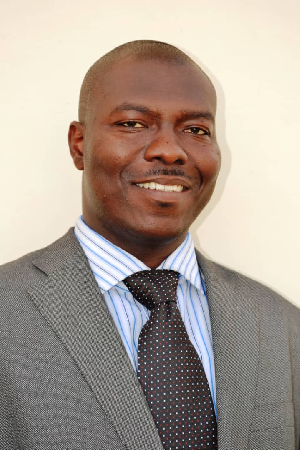Health News of Wednesday, 16 June 2010
Source: GNA
Joint review of HIV/ AIDS critical of achievements
Accra, June 16, GNA - Consultants in a joint review of the HIV/ AIDS National Strategic Framework II (NSF) on Wednesday noted that even though Ghana had a stabilised generalised HIV epidemic, there were significant regional, district and community variations.
The current prevalence rate ranges between two per cent in Northern Region to 4.2 per cent in the Eastern Region and as low as 0.7 per cent in North Tongu District to 5.8 per cent in Agormanya and Koforidua. Disseminating the report in Accra, a team of consultants led by Dr Hugues Lago reviewed NSF II on five thematic areas.
These are co-ordination and management of the decentralised multi-sectoral response; prevention and mitigation; treatment, care and support; research, surveillance, monitoring and evaluation; and policy, advocacy and enabling environment.
In 2005, Ghana AIDS Commission in collaboration with partners and representatives of key stakeholders agreed on the National Strategic Framework 2006-2010 (NSF II) and an accompanying Five-year Programme of Work, which provided the framework for national response from 2006 to 2010. The framework (NSF II) was therefore designed to provide an overall planning guide for a vastly expanded effort to deal with the epidemic including improvements to the supporting environment. It was also aimed at preventing infections, targeting behaviour change programmes to the population as well as specific vulnerable groups, treatment, care and support, and combating stigma and discrimination. Dr Yao Yeboah, Consultant on Co-ordination and Management of Decentralised Multi-sectoral Response, said some of the key achievements were the significant reduction among the Most At Risk Population from 34.7 per cent in 2006 to 25 per cent in 2009 while there had been increase access on Prevention to Mother to Child Transmission from 36,155 in 2006 to 381,874 in 2009.
On key challenges, he noted that though there were significant increases in the number of persons accessing HIV prevention services, less than 90 per cent had ever tested for HIV and less than 30 per cent of women benefited from Mother To Child Transmission services. He called for improved co-ordination and management at the district and community levels to ensure restructuring in the programme. Dr Agnes Dzokoto, Consultant on Treatment, Care and Support said the study revealed an increase of Anti Retroviral Therapy (ART) sites from 13 in 2005 to 138 in 2009 and those health systems had been strengthened through HIV treatment programmes.
She said though health systems had been strengthened through HIV treatment programmes some service providers expected extra funding for AIDS activities and were reluctant to implement activities without extra funding. Dr Dzokoto noted that inadequate number and capacity of human resources had been some of the problems that deterred the commission's work. She said only 50 per cent of women and 39 per cent of men who needed ART had access to the services and called for resource mobilisation for treatment after 2011 when funding for treatment which was donor dependent would not be available.
Dr Kwabena Poku, Consultant on Prevention and Mitigation said there has been high level government support such as World AIDS Day.
Dr Lago, Consultant on Policy, Advocacy and Enabling Environment said the commission had among other things entered into partnerships, established and strengthened relationship with key stakeholders like the media, parliamentarians, legal and human rights advocates.
He said although there was some level of political commitment and leadership, it was not fully translated into action.
"The degree of involvement of policy makers throughout the policy formulation and dissemination process is limited," he said. Dr Lago said to ensure a sustained political and policy involvement, there was the need to create a policy forum for regular interaction with stakeholders and the revision of HIV related policy issues as a basis for policy promotion and enforcement.
On resource mobilisation, he said there was funding from different organisations like Government, the UN System and the Private Sector to support implementation of national HIV response.
Dr Lago said the National AIDS Spending Assessment (NASA) for 2007 and 2008 has been conducted and disseminated. He said unequal level of understanding of funding modalities had been a problem affecting the project, adding that government had also failed to release funds early enough to support work at the regional and district levels.
Dr Lago called for increase in government funding from 10 to 15 per cent, alignment of funding to national priorities and conducting operational and actuarial studies.
The review team recommended that development of the National Strategic Plan 2011-2015 should take into account efforts to sustain and scale up the effective strategies and adequately address the challenges identified and the priorities proposed.










